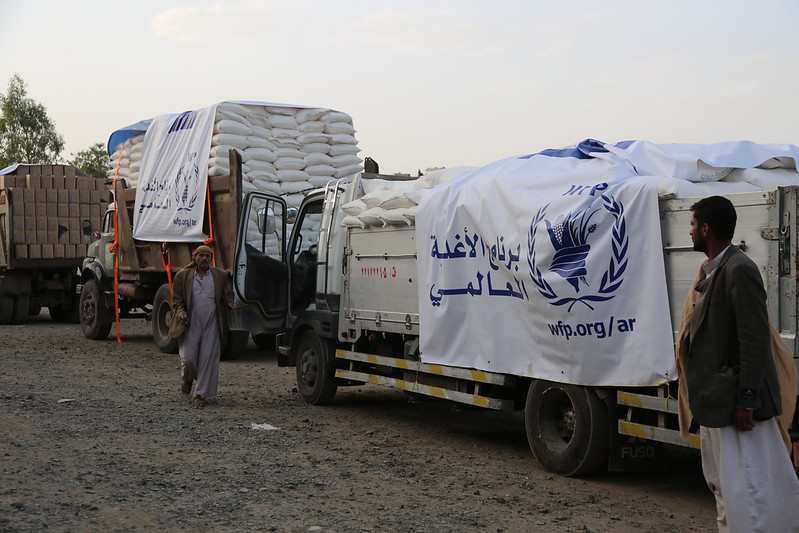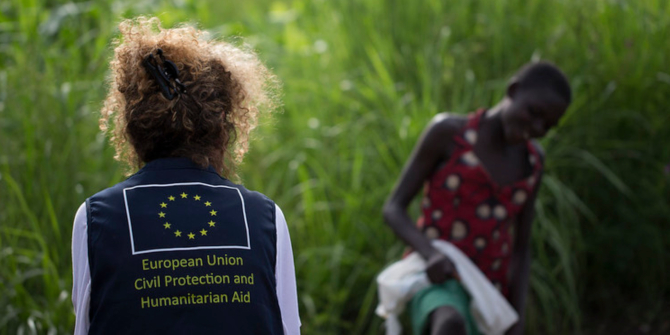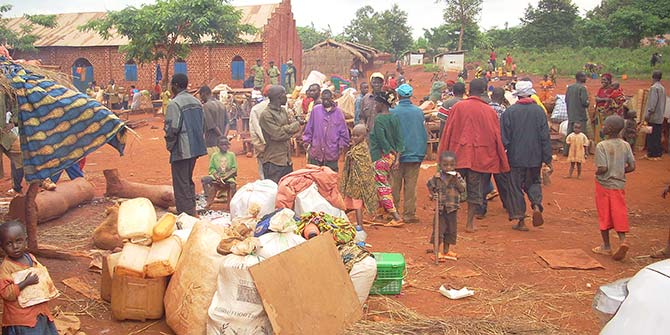LSE’s Marina Elgawly discusses Uganda as a potential model for addressing the refugee crisis globally.
October 2016 marked the full dismantlement of “the Jungle”, the notorious refugee camp in Calais that had come to symbolise the failure of EU refugee and migrant policy. The squalor of Calais brought to light the current rhetoric which surrounds the global approach towards the refugee crisis. Refugees are often framed as societal ‘burdens’ to be shared. More often they are seen as security threats, their presence understood as a danger to host communities. Around the world, mainstream refugee policies approach the crisis as a zero-sum issue. In Jordan, refugees face restricted access to education, while in Germany, they face restricted access to healthcare. In Lebanon, refugees face residency regulations that prevent them from renewing their residency permits, putting them at risk of arrest and ill-treatment by authorities. In Kenya and Ethiopia, they face restricted freedom of movement and, in turn, restricted access to employment.
Uganda represents a bright spot in this bleak global landscape of refugee despair. Rather than packing refugees into quasi-permanent tent camps, which are often in austere locations like deserts, and miles away from local communities, “Uganda has chosen a policy of inclusion over marginalisation”. Refugees are provided with a fertile parcel of land to cultivate, as well as a “starter kit”, which includes seeds to plant food and construction tools to build a home. If they wish, they may lease other parcels of land and open their own businesses. Refugees in Uganda have the same access to public services, like schools and healthcare clinics, as Ugandan nationals. They are even allowed to vote. The Ugandan model poses a sharp contrast with the restrictive refugee policies of other countries such as Jordan, where refugees often cannot leave their camps, or Turkey, where refugees cannot work without acquiring costly short-term work permits, rendering them vulnerable to exploitation.

Photo Credit: Geno Teofilo/Oxfam via Flickr (http://bit.ly/2jnCfBa) CC BY-NC-ND 2.0
While refugee policies in many countries tend to focus on redirecting substantial responsibility to neighbouring countries, Uganda’s refugee policy addresses key post-displacement development issues. Granting refugees freedom of movement means they are not bound to one place indefinitely. And more mobility means more self-sufficiency. Running businesses, trading goods and farming reduce the need for government handouts and allow refugees to lead sustainable livelihoods, discouraging dependency. Host communities benefit too: as refugees are able to build new lives as small-scale entrepreneurs, they can contribute to the local economy.
The development of the Nyumanzi market is just one of the encouraging narratives that illustrates this enabling environment. The market, which is shared between South Sudanese refugees living in the Nyumanzi Refugee Settlement and Ugandan nationals, stands as a hub of cultural coexistence and diverse entrepreneurship. Day-to-day interactions between the locals and refugees catalyse local integration and assimilation of refugees into their host communities. Such cooperation leads to community resilience. Intermarriages have also even been reported.
Uganda’s refugee management system is not immune to error. Despite a liberal legal framework, first- and second-generation refugees under the Ugandan constitution remain unable to acquire full citizenship. For refugees who cannot resettle elsewhere, the barrier to naturalisation poses a major limitation to human security. Refugees with homes and businesses in Uganda face a sense of uncertainty: should their refugee status lapse, they risk eviction from the settlement towns. In such situations, refugees’ fear of being forced “home” is no hyperbole. As long as they cannot attain full citizenship, a long-term solution in settlements is still out of reach.
Nevertheless, the success of the Ugandan model of self-reliance lies in its ability to exemplify that ‘their’ suffering does not equivocally translate into ‘our’ burden. The reality is that local populations and communities can benefit from a refugee presence. Refugees do not have to be a perceived as a drain on our economy. They do not simply steal jobs from locals; they can contribute, but only if we let them.
It will be difficult to persuade host states that alternatives to camps are not only better for refugees, but can also benefit the local economies and communities. As we approach year six of the Syrian refugee crisis, Europe and parts of the Middle East still struggle to cope with the increasing influx of refugees. The issue remains whether host governments will continue to rely on the stagnant narrative of humanitarian assistance vis-à-vis dependency and charity aid, or whether they will grant refugees with autonomy and sustainable living solutions. Uganda has provided the opportunity to transform how we talk about refugees. Whether or not there is global will to expand the choice set we offer refugees is one of the pressing questions facing our world, and it is yet to be answered.
Marina Elgawly is a MSc candidate in International Relations at LSE.
The views expressed in this post are those of the author and in no way reflect those of the Africa at LSE blog or the London School of Economics and Political Science.






Several european countries are receiving LGTB refugees FROM Uganda, an extremely repressive country on this issue. What a great example!
Very true Marina!
If only Kenya had more successfully integrated its Somali refugees, as opposed to keeping a majority locked up in Dadaab and elsewhere. If Uganda can consolidate refugee status under law, even better!
Many important points raised here, thanks. Indeed, Professor Alexander Bett’s study in Uganda showed that of the refugees who started their own businesses, 40% employ Ugandans, proving that refugees can contribute to job creation in the host economy.
Although development indicators in our district Yumbe where these refugees are hosted are among some of the worst you can get globally, we’re happy that we haven’t become too materialistic to deny our neighbors safe entry. I hope the actions of our people teach teach a lesson to the rest of the world.